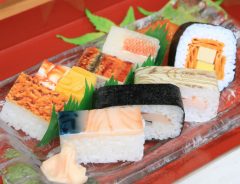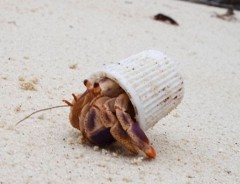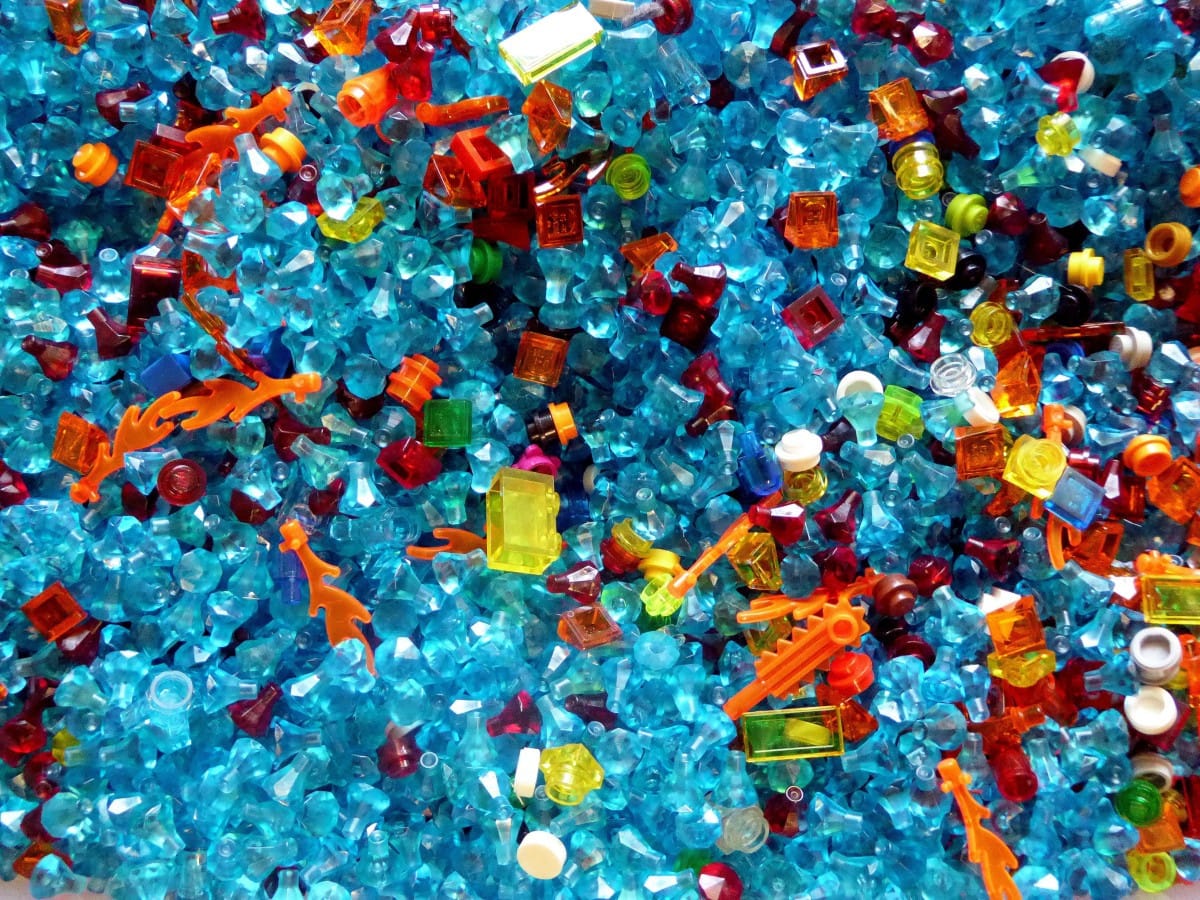Related Article
-

Muji to sell candy and snacks by weight, each individually plastic wrapped
-

Japanese Plastic Food Displays Look So Delicious
-

Japanese Kit Kats Promote Switch To Paper Packaging With Sending Them As Origami Messages
-

McDonald’s Japan to begin providing wood utensils and paper straws nationwide
-

Japanese Artist’s Amazing Super-Realistic Wearable Animal Heads Are Out Of This World
-

What This Hermit Crab In A Toothpaste Lid Is Teaching The World



Japanese society is compact. There’s little space on a resource-strapped island nation. Centered in densely populated metropolitan centers, citizens work closely with one another to ensure a harmonious society.
Their discipline expresses itself in many ways. Residents are friendly and respectful. They are orderly and conscientious.
More importantly, citizens are exceedingly thrifty. Rubbish is painstakingly sorted, divided into numerous categories, and discarded on a rotating schedule. Consumers at public events are accustomed to gomi mochikaeri ゴミ持ち帰り, bringing one’s trash home. Despite the absence of trash cans at many venues, streets are relatively clean.
Other examples of Japanese frugality are even more striking. Residents are renowned for their love of baths, most soaking daily. According to a DIMSDRIVE survey, over 50% of households recycle bathwater. Via a specialized pump, their discarded water is streamed into washing machines where it is reused during the initial wash cycle.
Approaching the Precipice
Yet, Japan has its shortcomings. Although 2019 witnessed reduce emissions throughout the country, another facet of this highly organized society is threatening the environment: plastic waste.
It's no secret that Japan is addicted to plastics, especially packaging. Cultural instincts are driving a presentable society and forcing producers to wrap products appealingly. This means a lot of packaging that, when discarded, is harmful to the world’s oceans.
Here is a poignant example, all the packaging leftover after dinner:
Sure enough, Japan’s plastic waste is starting to cause problems. One of the largest consumers of plastics, Japan is polluting the marine ecosystems that provide its sustenance. Indeed, refuse is collecting in the surrounding oceans. This micro-plastic contamination is entering the food chain, contaminating fish stocks.
Is it Really That Bad?
I live near a Honshu bay. During oceanside walks last summer, the amount of plastic pouring onto beaches and seaside parks struck me.
On one occasion, ocean water was overflowing the cement embankment of a seaside park. The water was flushed with plastic waste that, as the tide ebbed, washed onto the walkway. The next day this bayside area was covered in refuse. It stayed that way for several weeks.
Such a scene made me reconsider my use of plastics. Like many consumers, I’ve embraced habits to limit my footprint. Although it's annoying to refuse plastic bags repeatedly, it's a worthwhile endeavor. But does it make a difference?
To further our scope of plastic waste, my significant other and I decided to collect our discarded plastic for a week. We maintained normal eating and shopping habits but accepted as many plastic forks, bags, etc. as offered. We also left our eco-bags at home and thoroughly wrapped our produce in the typical Japanese manner.
A Week of Trash
Photo by Luke Mahoney
And there it is, in all its splendid glory. Our waste weighed-in at about 1.6 kg in six bags. Presumably, that’s a bit above average for us. Nevertheless, that’s 83.2 kg (42 kg per individual) of plastic waste a year.
What does this represent?
Bad news for us, that’s significantly greater than the average resident. In Japan, per capita plastic waste is around 30 kg per year, 9.4 million tonnes per year nationwide. Although the country exports more, the government plans to reduce domestic plastic waste by 25% by 2030.
Where is This Plastic Going?
By law, residents must recycle plastics. Precisely, we must follow sorting guidelines imposed by recycling centers. Residents reliably follow this procedure, and headline recycling rates are 84%.
Therein, however, lies a problem. Until 2017, Japan shipped a portion of its plastic waste to China. After China banned the practice, Japan began shipping this waste to countries such as Indonesia and Vietnam. Some suggest that poorer countries incapable of disposing of plastic properly. After researching the matter, it seems these countries allow a lot of waste to enter the ocean. Indeed, the amount of oceanic plastic emanating from Southeast Asia is staggering.
Let’s reconsider our numbers. As a couple, we produce about 83.2 kg of recycled plastic waste a year (comprising that earlier headline figure of 84%) and 15.8 kg of unrecycled plastic waste (the unaccounted 16%). A bit less than 20% of Japan’s plastic waste is shipped abroad. For the sake of this article, let's assume that waste is effectively improperly disposed of.
Perhaps it's a bad assumption, but let's say that most improperly disposed waste makes its way into the ocean. At about 36% (20% poorly handled + 16% improperly discarded), that's about 32 kg per year, a third of our annual plastic waste floating in Asian oceans.
What’s the Effect on Marine Life?
According to a 2015 study published in Science, every year, 8 billion kg of plastic waste enters the world's oceans. biologicaldiversity.org reports that 100,000 marine animals are injured or killed by plastics yearly. Accordingly, my SO and I will incidentally kill or injure one animal about every 200 years, or every two lifetimes. With an estimated 40,000,000 couples in Japan, that number adds up.
Moreover, if 30% of Japan’s 8 million tonnes of annual plastic waste enters oceans, the country is responsible for about a third of the damage. That’s a whopping 30,000 animals injured or killed every year. Even if this presumption is excessive, half that figure would still result in 15,000 incidences per year.
Admittedly, this is not a scientific conclusion. There are several unfounded assumptions that likely won't play out. However, the overall assertion stands. There is a lot of plastic produced in Japan, and a lot of it is carelessly discarded. Adding to the urgency, Japan is certainly not the only country with this problem.
The process of recycling plastics is far from perfect. Recent headlines underline this point. The government of Japan is right to reduce plastic waste, and consumers are right to be frugal. Nevertheless, as in all industrialized countries, the over-consumption of this non-disposable resource needs to be grappled with.